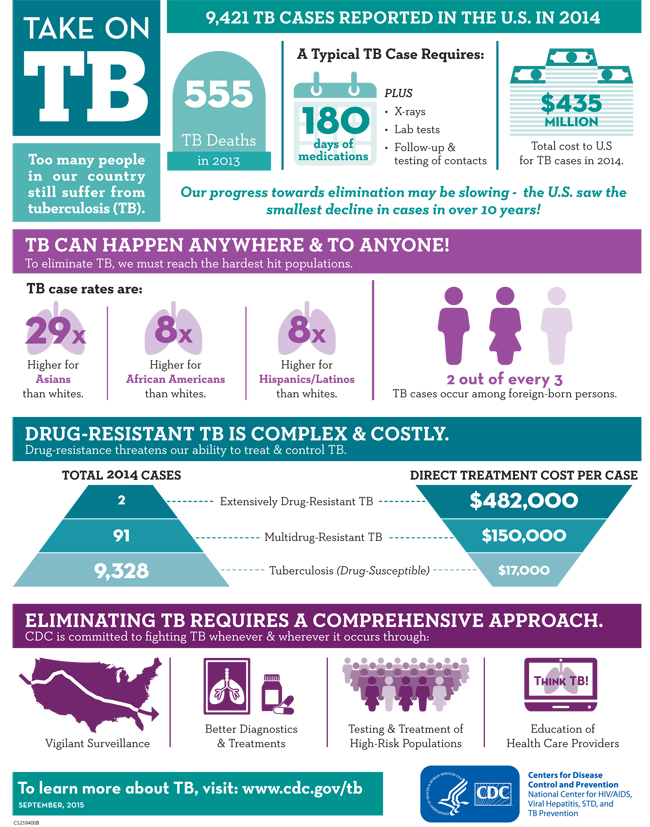5 facts about tuberculosis – a disease that still kills millions

Image: REUTERS/Luke MacGregor
It's World TB Day today, and the World Health Organization has launched a campaign to bring an end to tuberculosis.
The infectious disease is one of the world's top killers, disproportionately affecting people in poorer countries, with more than 95% of TB deaths occuring in countries with low and middle incomes.
Here are 5 fast facts you may not know about the disease:
1. One-third of the world’s population is infected with TB.
2. Almost 10 million people around the world became sick with TB in 2014.
3. In the same year there were 1.5 million TB-related deaths.
4. TB is a leading killer of people who have HIV.
5. A total of 9,421 TB cases were reported in the United States in 2014. A 1.5% decline from 2013.

So, what is TB?
According to the WHO, tuberculosis is caused by airborne bacteria that most often affects the lungs. It is both curable and preventable, but in 2014 it caused the deaths of 1.5 million people.
The disease can be latent, meaning people are infected with it but have not yet fallen ill and aren't likely to transmit it. Once infected, people have a 10% risk of falling ill with TB. Those with a compromised immune system are at a higher risk.
How is the world tackling it?
Since 2000 more than 43 million lives have been saved through effective diagnosis and treatment.
Ending the TB epidemic by 2030 is a health target under the Sustainable Development Goals, following a global failure to achieve the Millennium Development Goal of reversing the TB epidemic by 2015.
Although TB occurs across the world, the largest number of new cases in 2014 occurred in South-East Asia and the Western Pacific Regions. However, Africa has the highest proportion of cases per 100,000 population.
The WHO implemented an End TB Strategy in 2014, which is described as a “blueprint for countries to end the TB epidemic by driving down TB deaths, incidence and eliminating catastrophic costs”.
Don't miss any update on this topic
Create a free account and access your personalized content collection with our latest publications and analyses.
License and Republishing
World Economic Forum articles may be republished in accordance with the Creative Commons Attribution-NonCommercial-NoDerivatives 4.0 International Public License, and in accordance with our Terms of Use.
The views expressed in this article are those of the author alone and not the World Economic Forum.
Stay up to date:
Future of Global Health and Healthcare
Forum Stories newsletter
Bringing you weekly curated insights and analysis on the global issues that matter.